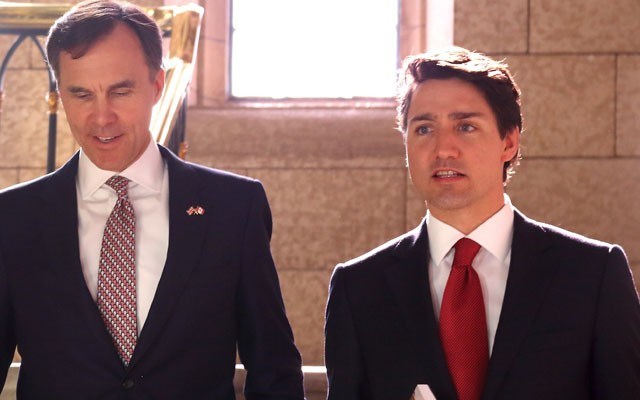Much has been made of the challenges facing local small businesses as of late.
Whether it's the rising lease rates, a lack of staff, finding housing for their employees (and sometimes even themselves...), more and more business owners are finding things are getting tougher.
Are we doomed to lose the character of small, independent businesses?
It seems as if the trend is not contained to Whistler.
After enjoying several months as some of the most confident entrepreneurs in the country, B.C.'s small businesses are starting to lose their sense of optimism, according to the Canadian Federation of Independent Business (CFIB).
Two months ago, the province's entrepreneurs were Canada's most optimistic. In August, they fell to sixth.
According to the CFIB, overall hiring intentions were down last month, with 20 per cent of small business owners planning to increase full-time staff. In contrast, nine per cent said they are looking at cutting back.
At the same time, confidence is starting to slip, small business in B.C. is growing, according to the Whistler Chamber of Commerce.
"Our members cover the full spectrum of hiring their first employee to rapid growth through export," says Whistler Chamber CEO Melissa Pace.
"A recurring theme amongst many members is the need for affordable, adequate housing for their teams... related to this is the tight labour market that the research tells us is not going away."
How can we retain the confidence of our small, independent entrepreneurs — the women and men who make our communities vibrant and unique?
From the Chamber's perspective, it's about working with partners on all levels on things like housing, labour and transportation, helping its members retain staff, and offering worthwhile benefits and training.
But we also need to be able to trust that our political leaders are putting forward sound policy. To hear it from Canada's business leaders, the federal government's recent proposed tax changes are the exact opposite.
The changes, designed to close "tax loopholes" used by the wealthy to shelter themselves from taxes, constitute a three-pronged approach: restricting the ability of business owners to lower their tax rate by "sprinkling" income to family members in lower tax brackets; limiting the use of private corporations to make passive investments in things like stocks or real estate; and limiting the ability to convert a corporation's regular income into capital gains, which are typically taxed at a lower rate.
Some, like University of Ottawa professor Michael Wolfson, who researches income and equality issues, have praised the proposed changes.
"The minister's proposals would clearly increase tax fairness," Wolfson wrote in the Globe and Mail last month. "Indeed, the extra revenues collected from mainly higher-income individuals, by bringing their effective income tax rates more in line with their salaried counterparts, could be used to benefit the poor and those in the middle class."
But according to the CFIB, the current rules allow for incorporated businesses to protect themselves from sometimes-tumultuous market forces, and the changes would make them vulnerable in bad economic times and less able to innovate or grow.
"For me personally, the ability to set aside or pool funds from operation (currently taxed at the lower rate) is advantageous as it gives me better financial reserves to ride out the downturn and slowdowns in the market cycle," says the Whistler Real Estate Company's Pat Kelly.
If the changes go ahead, he adds, entrepreneurs may otherwise "be forced to go to a bank (who tend to be notoriously hard on small businesses) to make rent and payroll."
For the uninitiated, reading about proposed changes to tax policy may induce a slight eye-glazing effect, but, well intended or not, they clearly have big implications for small business owners.
The real takeaway is this: Thirty-five organizations from across the country have come together to form what's being called the "Coalition for Small Business Tax Fairness," with the goal of opposing the changes via a single, unified voice.
"These proposals, while intended to target the wealthy, will hurt middle-class business owners from every sector of the economy... the entrepreneurial families who are the backbone of the economy and responsible for the majority of job creation in Canada," says CFIB president Dan Kelly.
The federal government is currently undergoing 75 days of consultation on the changes — a period that has taken place over the lazy summer months, and ends Oct. 2.
There's no doubt that more can and should be done to increase tax fairness, benefitting Canada's poor and those in the middle class.
But let's hope our elected officials, both in Ottawa and Victoria, listen to the voice of small business owners before signing off on underdeveloped policy.




